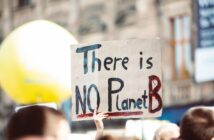Tomorrow, June 19th, EU officials are due to meet to agree its proposed €750bn recovery fund. Many organisations have expresssed strong opinions on how that money should be invested including the International Energy Agency (IEA) which has today set out a string of policy recommendations built around a green Covid-19 recovery package.
The organisation claims that if the recommendations are followed in full they could slash annual energy-related emissions by billions of tonnes, while creating jobs, improving air pollution and boosting GDP.
Not surprisingly the bulk of the 30 policy recommendations focus on the battle against climate change encouraging the EU to spend on decarbonising heavy industry, creating renewable electricity sources, delivering low-carbon transport andbuildings, and exploring alternative fuels. It claims that over six million new jobs would be created or protected across the continent and that global carbon emissions in 2023 would be 4.5 billion tonnes lower than current “business-as-usual” predictions.
The plan which would require $1trn of investment every year through to 2024, would apparently boost global GDP by 3.5% over three years.
The IEA also says that the plan would be a major validation of one of the key UN Sustainable Development Goals SDG – SDG 7, Clean Energy for All – the progress of which has been seriously hampered by the Covid-19 crisis.
“This year is the last time we have, if we are not to see a carbon rebound,” Fatih Birol, executive director of the International Energy Agency told The Guardian. “The next three years will determine the course of the next 30 years and beyond,If we do not [take action]we will surely see a rebound in emissions. If emissions rebound, it is very difficult to see how they will be brought down in future. This is why we are urging governments to have sustainable recovery packages.”
During lockdown Carbon Dioxide emissions plunged by a global average of 17% in April, compared with last year, but have more recently since surged again to within about 5% of last year’s levels.
The chief executive of the Global Wind Energy Council (GWEC) Ben Backwell which worked closely with the IEA on the report, reiterated Birol’s view: “Six months. This is our time window now if we have any chance at decarbonising our economy securing a future for our planet. The IEA report highlights that wind and solar should be a top priority for governments as they prepare their stimulus packages to power a green recovery – and this is not just because of their climate benefits.”
The IEA underlined that its report should serve as a reference point for policymakers and not be taken as the only possible road to a green recovery.
It will be fascinating to see how the EU, and indeed the UK which is building its own Covid-19 recovery plan, responds.




